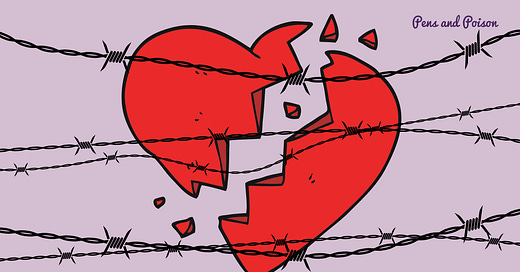Daddy, I Have Had to Love You: Desire in Sylvia Plath’s “Daddy”
Read the Thesis That Got Me Kicked Out of Columbia University's Honors English Program
The following essay is a commentary on Sylvia Plath’s 1965 poem “Daddy” and was completed—but not published—through Columbia University’s Honors English Thesis Program in 2019.
When we think of revolutionary female writers, we often restrict the term to women who have demonstrated a push towards liberation from an oppressive patriarchal society. Jane Austen never married despite society’s obsession with ushering young women into wedlock. George Eliot pursued an extramarital relationship with George Lewes in a society that upheld traditional Christian marriage values and frowned upon adultery. Virginia Woolf pursued a homoerotic relationship with Vita Sackville-West during a time that her lesbianism would have made her a social outcast. Yet why is it that we read Austen, Eliot, and Woolf? Is it because these women defied their oppressive and heteronormative environments and acted according to their desires, or is it because these women produced literature that is still worth reading today? We may speak of strong female characters, but the fact that these women declared war on the patriarchy has little to do with the quality of their writing. Enter Sylvia Plath, a woman who appeared on the literary stage in the wrong place at the wrong time. Plath lived in an era when second-wave feminism was on the rise; speculation about her symbolic suicide—by sticking her head inside an oven—has led feminist thinkers to inspire a “widespread hatred” of her husband Ted Hughes, who beat her several days before a miscarriage. We know this much from letters that have recently surfaced between Plath and Hughes. What we do not know is what the circumstances of the assault were, or how Hughes really treated Plath throughout their short-lived marriage. Hughes’ actions are inexcusable, yet there is more to the story of their marriage than abuse, and such instances are often not black and white: if there were never any complex feelings of love between the couple, then, perhaps, Plath might not have been so troubled. And therein lies the under-researched crux of the relationship: Plath and Hughes were once in love.





